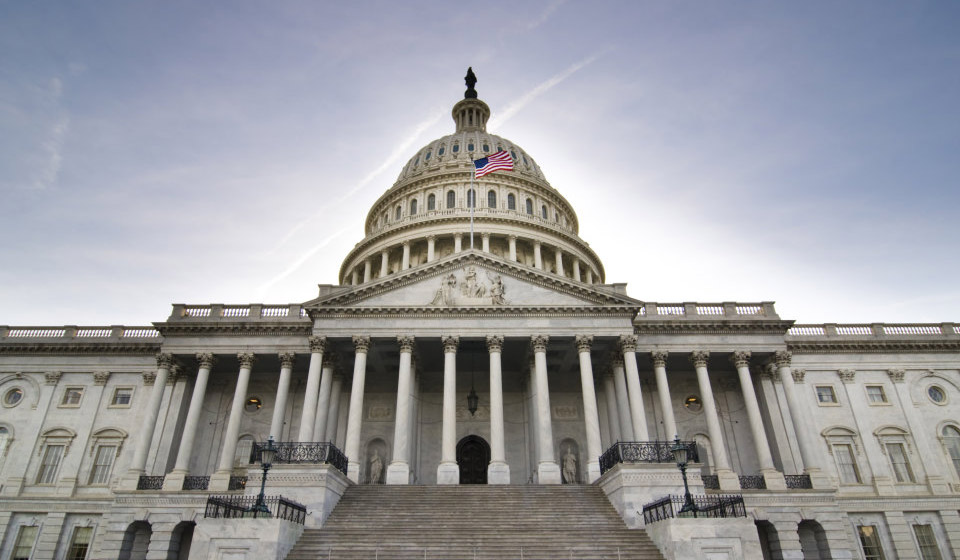Apr 26, 2017
New Governmental Policies that HR departments Should be Aware of
With topics like parental leave, minimum wage, and health insurance in the news, and as the Trump administration pushes for sweeping changes in the regulatory landscape, employees may be wondering about these potential new laws that will impact them in the workplace.
This is a good time for employers and HR departments to open up conversations. Employees should be clearly informed and consulted so that they aren’t blindsided by new regulatory or financial laws. To do this, HR departments should proactively monitor proposed legislation at the federal and state levels that could significantly impact employers and employees.
Employee health insurance
It’s not clear how the Republican Congress and the Administration will react to the failure of the American Health Care Act (AHCA). Nor is it clear if, or when, the Trump administration and Congress will make another effort to repeal and replace, or whether Republicans will seek Democratic support in an effort to “repair,” the Affordable Care Act. But for now, the ACA remains the health care law of the land
Despite the fact that health insurance is the largest tax break in the US tax code, employers were not a major focus in the creation of the ACA. Neither were they a major focus for those who drafted the AHCA. The GOP historically sees opportunity in the tax code and addressing businesses ability to offer tax-deductible health insurance to employees will likely be addressed at some level whether the current administration decided to replace or revise the ACA.
Hiring employees with H-B1 work visas
While the Travel Ban is still in judicial limbo, immigrant workers are still not fully protected. President Trump has suggested that he would limit or end the H-1B visa program that many companies use to give employment to foreign workers. Trump signed an executive order which takes aim at both H-1B visas, which capped H-1B visas at 65,000 a year and designated them for so-called “specialty positions,” as well as targeting visas used for temporary agricultural workers, summer student workers, and intracompany transfers. If you work in the tech industry, this could be a big obstacle. Tech companies frequently depend on immigrant labor and hire H-1B visa holders. If Trump holds to his claim, companies may have to search solely within the United States for talent.
Bathroom regulations
Effective last month, California passed a bill that requires every single-occupancy restroom to be labeled as an “all gender” facility. California’s Equal Restroom Access Act (ERAA) applies to single-occupancy restrooms in businesses, government buildings, and places of public accommodation.
Many states across the U.S. are in the midst of passing legislation on this topic, such legislation will affect schools and government buildings. For example, currently, North Carolina appears to be revising their original law with a new measure, while in Texas, legislators are working on a similar piece of legislation called the “Texas Privacy Act. At the same time, the Trump Administration recently indicated it did not plan to repeal President Obama’s 2014 Executive Order providing protections for gay, lesbian, bisexual and transgender employees of federal contractors.
Employers should monitor these developments to ensure that they stay in line with federal laws and regulations while remaining cognizant of state laws that may offer different protections.
Maternity leave and childcare
While on the campaign trail, President Trump promised to institute a plan that would allow new mothers who don’t get paid leave from their employer to collect six weeks of unemployment benefits. Under his plan, the leave would be paid for by unemployment insurance. Though it is unclear whether this would extend to fathers or same-sex marriages.
Additionally, Trump said he would allow childcare expenses to become tax-deductible through an Earned Income Tax Credit. This specifically is meant to benefit those who live below the poverty line and are estimated to spend upwards of 30% of their annual income on childcare.
While some companies–mainly in the tech world–have beefed up their parental leave offerings recently, many workers are not offered paid family or sick leave. The existing Family and Medical Leave Act, commonly known as FMLA, allows eligible workers to take 12 weeks of unpaid leave following the birth of a child or to take care of a personal or family member with a serious illness. But many families can’t afford to take unpaid leave. And many workers are not subject to FMLA.
Secretary of the Department of Labor appointee
President Trump appointed Alexander Acosta to Secretary of the U.S. Department of Labor. While Acosta is a less controversial pick than Trump’s initial appointee, Alexander Puzder, Acosta will still directly influence the national employment law environment through President Trump’s initiatives. Trump has already directed federal agencies to freeze all pending regulations, including the Department’s Overtime Exemption Rule, which would have raised the minimum salary requirement for employees covered by the FLSA’s white-collar exemption. President Trump’s freeze also impacted the Department’s Persuader Rule, which would have expanded the required disclosures for consultants assisting employers with union avoidance and collective bargaining. And more recently, President Trump ordered the acting Secretary of Labor to review the Obama Administration?backed “fiduciary rule.”
The content writers at BigSpeak Speakers Bureau are Experts on the Experts. They hold doctoral, masters, and bachelors’ degrees in business, writing, literature, and education. Their business thought pieces are published regularly in leading business publications. Working in close association with the top business, entrepreneur, and motivational speakers, BigSpeak content writers are at the forefront of industry trends and research.
Tags
